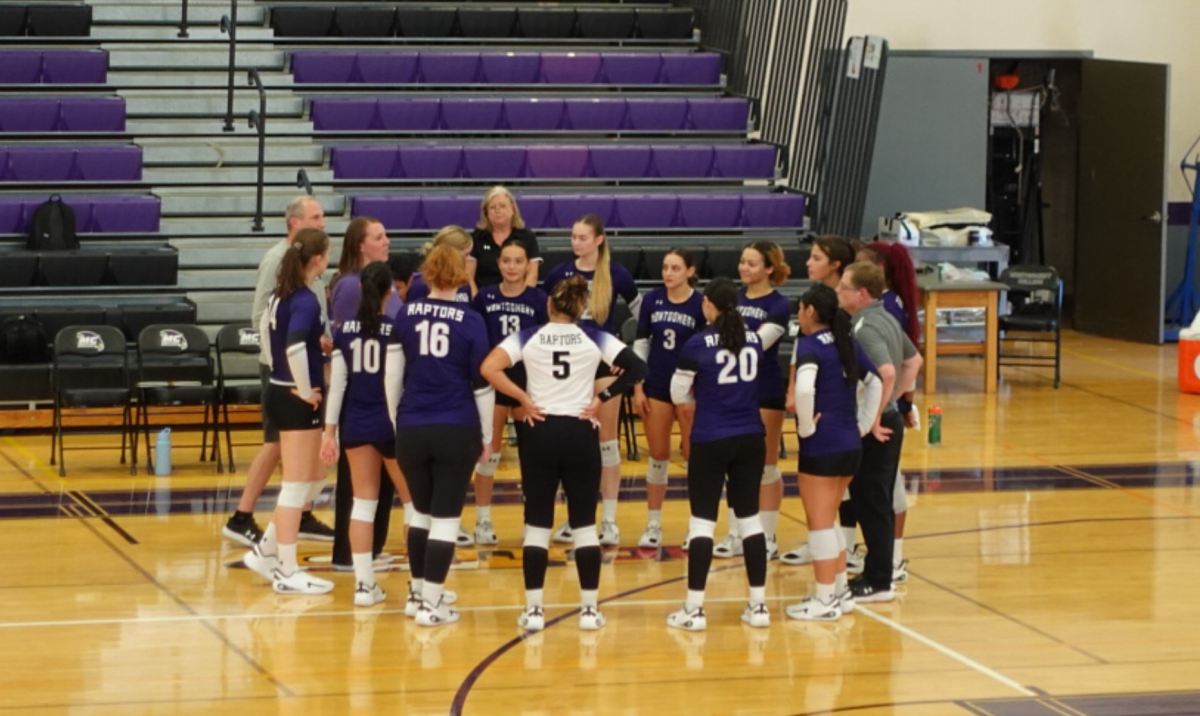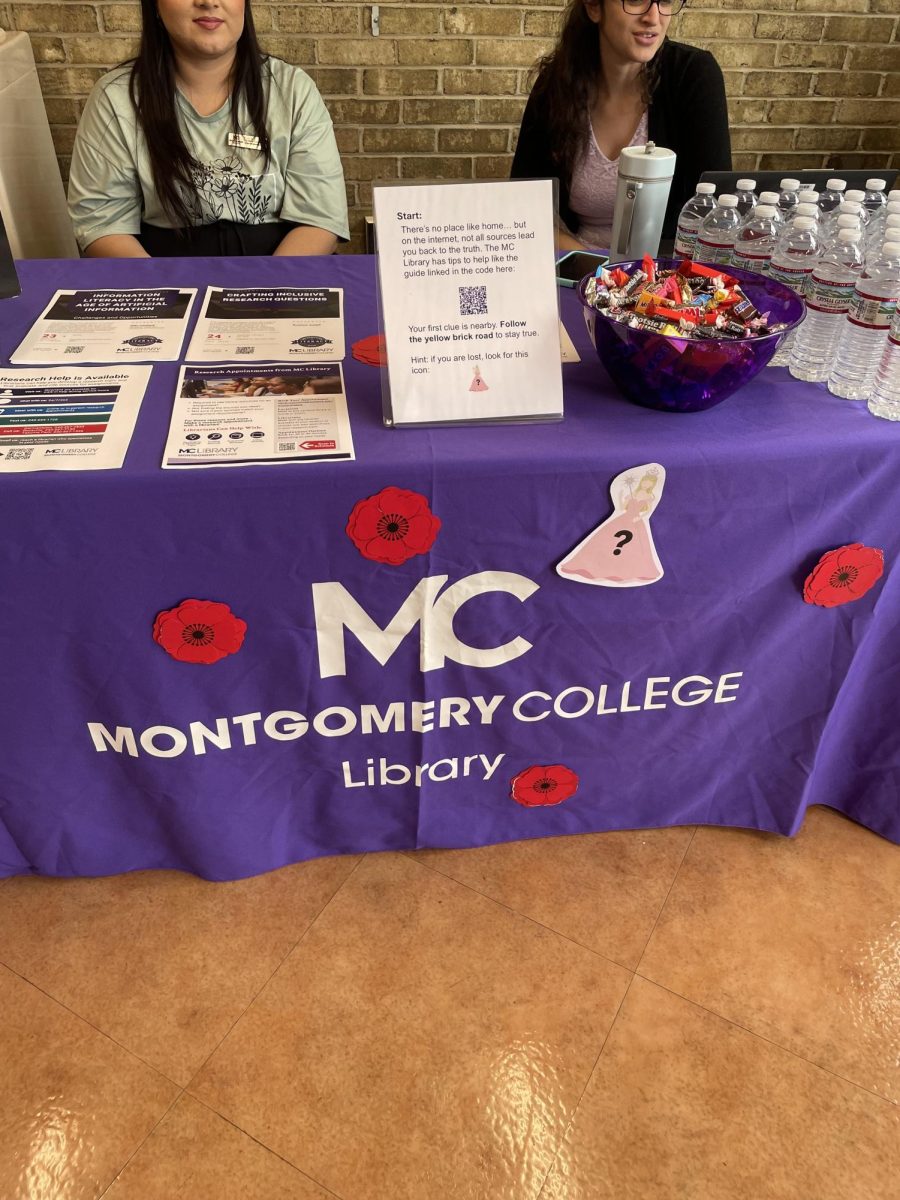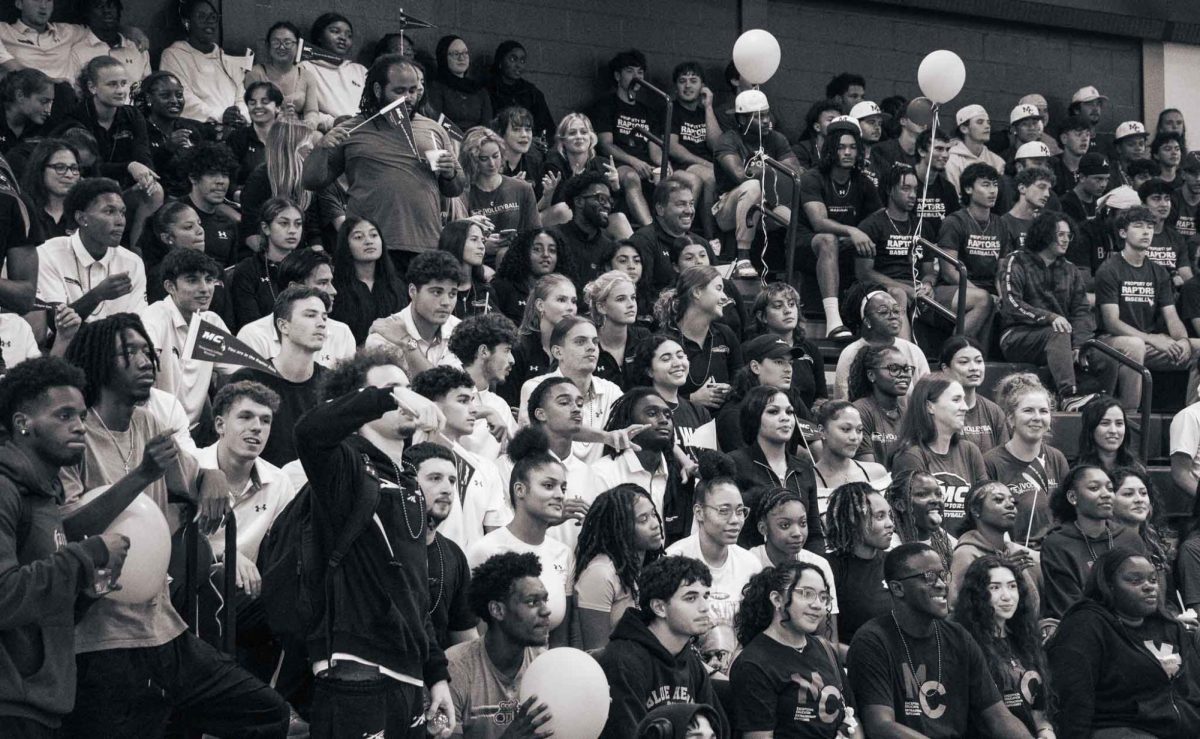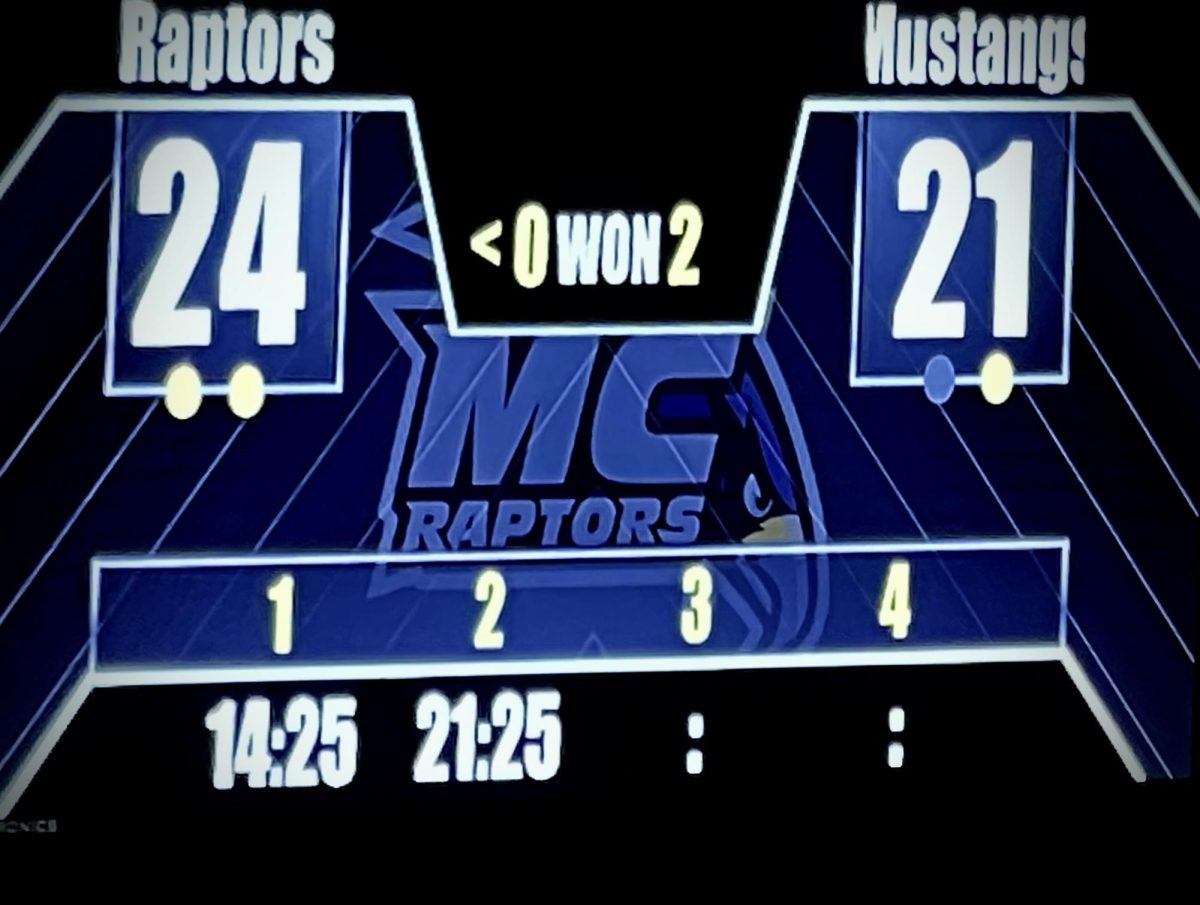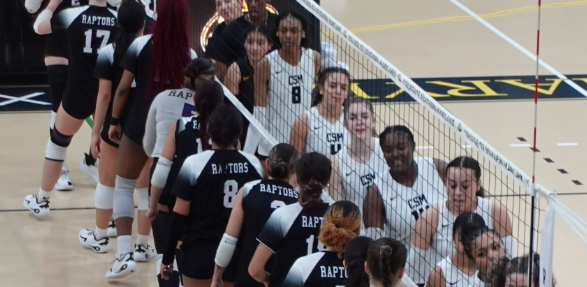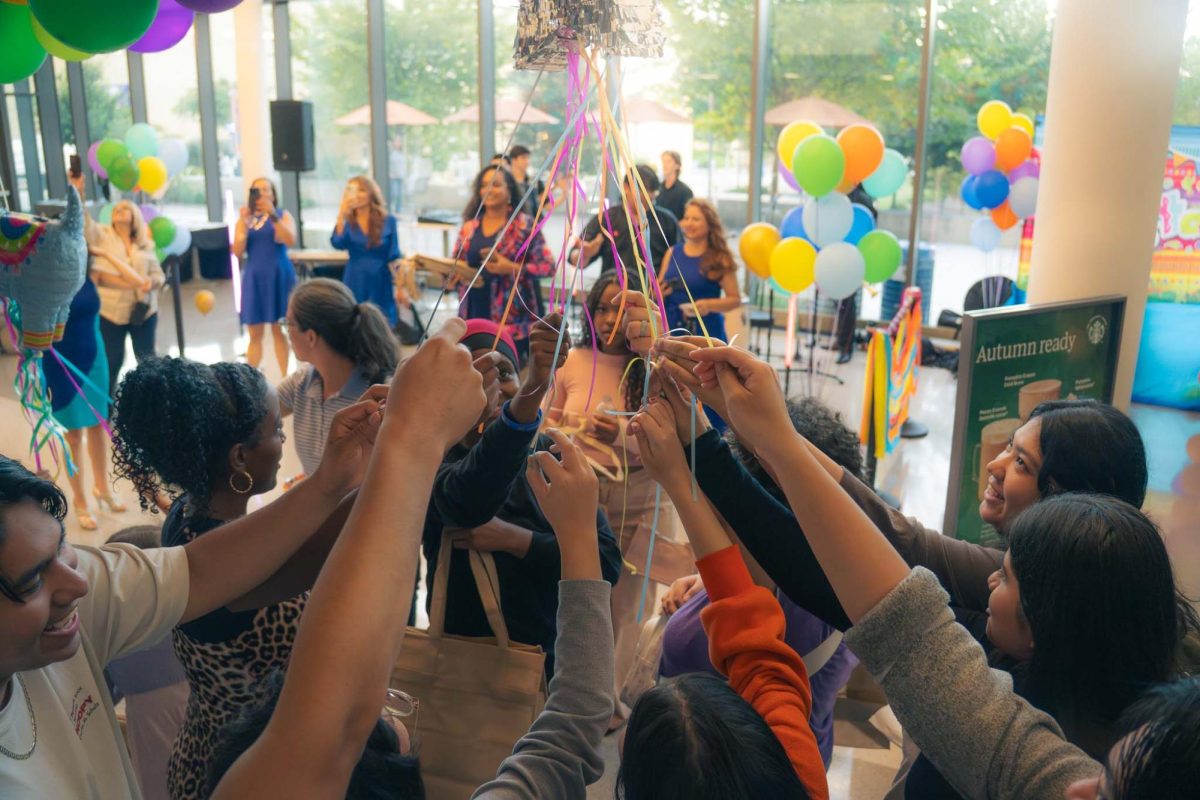“What was your life and your family like before the war?” Professor Kenneth Jassie, founder of Montgomery College’s “Portrait of Life” program, asked two Holocaust survivors.
Josy Traum, one of the two survivors, answered. “The war had just started when I was only an infant. I was born in March of 1939, and the war started in September, later that year.”
“My mother was arrested and sent in a cattle-car to Auschwitz. The cars were jammed with people with no food, no water, and no shelter.” -Josy Traum, holocaust survivor.
“We had a simple life at the time,” she said. “My mother was a dress-maker, and my father a violinist for the silent movies, no less. Yet when the ‘talkies’ came out in movies, my father was out of a job.”
The Paul Peck Humanities Institute and the local “Portraits of Life” organization, which reaches out to survivors of the Holocaust in Montgomery County and encourages them to tell their stories, helped organize and initiate the commemoration. Students from Montgomery College went up to the stage and presented a brief synopsis of the departed Jewish and Gypsy victims of the Holocaust, as well as the events that forced them under Nazi control.
The main part of the commemoration was Professor Jassie having a live interview with the two survivors. Freddie and Josy Traum, married for 55 years, had absolutely amazing, yet heartbreaking stories to share with the crowd.
Freddie’s childhood was a trial in its own right before the war. “I did not have many friends growing up. What’s more, my father was also crippled around the time when I was born. With me helping him, that did provide a lot of time for us to spend together,” he said. He notes that he grew into his ambitious and confident attitude by spending time on the farm with his father, helping him with his cows and the like.
“What was your life like during the war?” Jassie asked as his second question.
“After going to school for tailoring, my father was fortunate enough to have a safe and convenient way to get out of Europe,” Josy said. “He became a tailor for the British Army’s uniforms. We were able to get on one of the very last ships across the channel to England.”
Her mother had a far more dangerous job, though voluntarily. “My mother would house one to three Jews at a time who were escaping the war. We only had a small apartment, so it was a very tight fit,” she said.
“My mother leaving me when I was only three was extremely difficult.” Josy admitted. “I was taken to an orphanage just outside Venice. The nuns at the orphanage were extremely strict, but they kept us safe. [They] risked their lives to bring the other children and I to Christian homes for hiding. I was lucky to have a safe home in 1943. My mother did save my life. She was transported to Auschwitz, a concentration camp, shortly after I was hidden.”
In times of the war, many owners of households that were perceived to be hiding Jews were interrogated and beaten often.
As Freddie described his life during the Holocaust, he recollected his father making the chaos and movement of his family seem like a fun adventure. “My father would always have a positive and ambitious nature about him, even in the roughest of times.” Freddie said. “He, too, hid me with a Christian family in England and made it easy for me to adjust.”
What aided the rescue missions for Jewish families was a broadcasted message by BBC News. In 1942, the broadcast encouraged all English or nearby nation citizens, to shelter Jews in their homes for safety. Roughly 10,000 to 15,000 Jews fled to England during that time, according to Freddie. “I was lucky with my foster family, though. They made me feel right at home. The boy had a bicycle, which was amazing to me, and the father engineered locomotives for a living. He even took us around for rides.”
Josy described the loss and eventual reunion with her mother after the war.
“My mother was arrested and sent in a cattle-car to Auschwitz. The cars were jammed with people with no food, no water, and no shelter. Over 150 people were often put into one cattle-car. Auschwitz was unique because it had a labor camp as opposed to every other site just having a death camp.”
The saddest aspect of Josy’s story is that her great-grandmother and her mother were separated at arrival in Auschwitz. Her great-grandmother was later killed, never reunited with Josy’s mother. There were three groups of liberation militaries that won the war: United States, British, and Soviet. “My mother was rescued by the Soviet Military. We were reunited as I was taken back home. There she was, just standing in the doorway.” she said, tearfully.
Freddie described a different experience during the liberation period. “When coming home from England, my sister and I looked up through authoritative record, that our parents had perished. It was a very difficult time, needless to say,” he said.
In 1947, after things settled down after the war, the British Government realized the number of “illegal citizens” they had on their land, with little to no means of providing for themselves. Thus, the British gave free citizenship to all survivors and immigrants. “That was very remarkable,” Freddie exclaimed. “I received citizenship and joined the British Navy.”
During Freddie’s time in the Navy, Josy had been studying abroad in Israel, after the liberation. She wanted to return to Europe, taking the English Channel. It was there that she met Freddie, her husband of the next 55 years, where he was the head officer on the ship to England.
Freddie and Josy Traum have lived a full and inspirational life.
For the final question posed to the couple, they had an answer which we should all try to live up to: “What lesson would you have for the audience here tonight, as we commemorate your survival stories?” Professor Jassie asked.
“During the time of the Holocaust, we both had several strangers stick their necks out for us, for no reason but to save another innocent human being from death. Many many people made this possible, us being here,” Josy said. “If you ever see or hear of anyone going through danger, trouble, or abuse, do something about it. Do not be a bystander. Those heroes we speak of could be anyone. They did something.”
That message is so simple and obvious, yet so complicated at times. Personally, I am a result of others not being bystanders. My grandfather, Klaus Zwilsky, is a Holocaust survivor. I will forever be indescribably grateful for everything he and others around him did. I would not be here if not for everything they did. That, on its own, is worth remembering for eternity. None of us should be bystanders, because we can influence what happens, and we cannot let what happened in the lives of these survivors happen ever again. “We shall not forget.”


